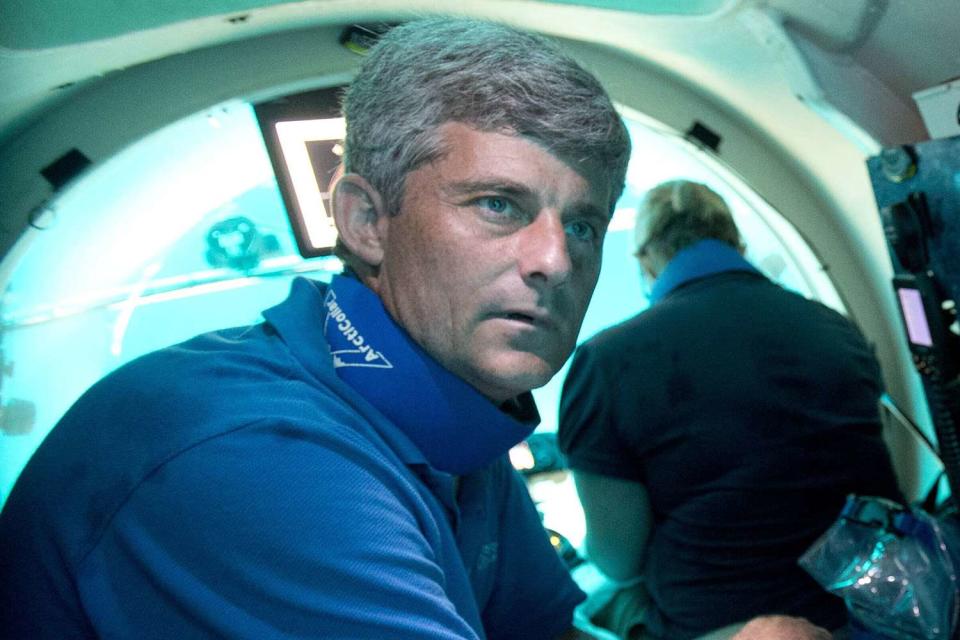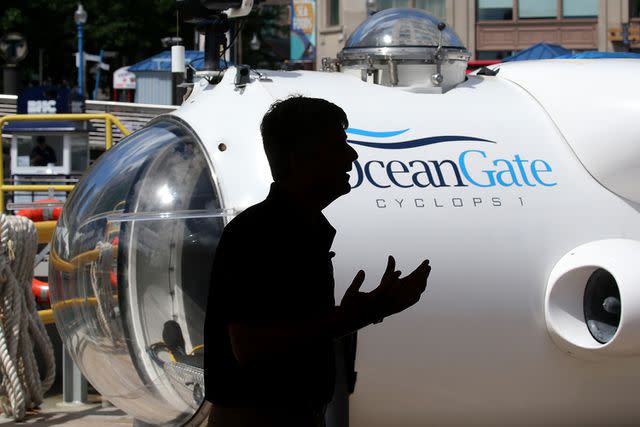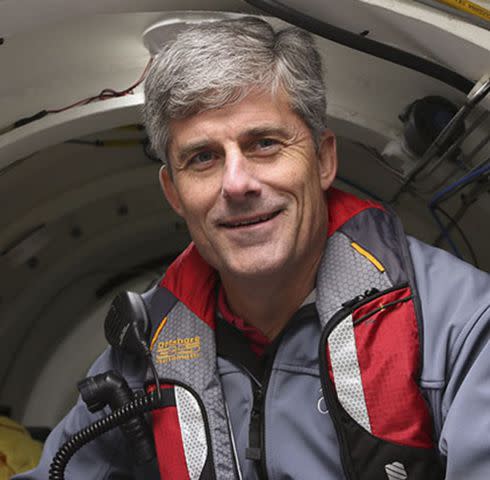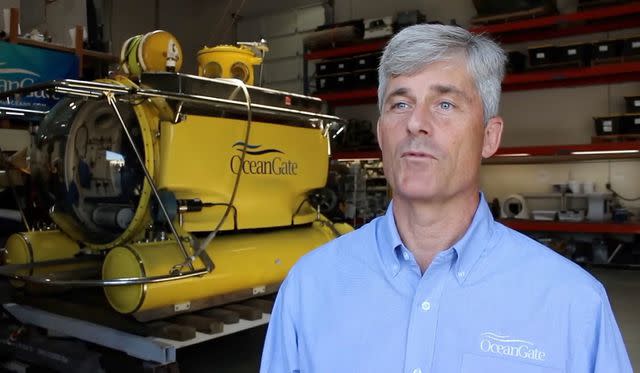OceanGate CEO Stockton Rush Once Said He’d ‘Broken Some Rules’ in Building ‘Titan’ Sub
"I think I've broken them with logic and good engineering behind me," Rush, one of five victims of the "Titan" sub implosion, said in 2021

AP Photo/Wilfredo Lee
Stockton Rush in June 2013.OceanGate CEO Stockton Rush, one of five passengers who died on board the Titan submersible, previously said he broke "some rules" when designing and building the vessel.
Rush, 61, was killed following a "catastrophic" pressure implosion, officials said on Thursday. The other passengers who died are Paul-Henri Nargeolet, 77, Hamish Harding, 58, Shahzada Dawood, 48, and Dashwood's 19-year-old son Suleman Dawood.
During a 2021 interview, which has now resurfaced, Rush told YouTuber Alan Estrada — who documented his 2022 journey on the Titan in a series of videos posted on the platform — he had "broken some rules" with the design of the sub, according to CBS News and Insider.
He said he took inspiration from General Douglas MacArthur, whom he quoted as saying, "You're remembered for the rules you break."

David L. Ryan/The Boston Globe via Getty Images
Stockton Rush."I think I've broken them with logic and good engineering behind me. Carbon fiber and titanium? There's a rule you don't do that," Rush told the YouTuber. "Well, I did."
Never miss a story — sign up for PEOPLE's free daily newsletter to stay up-to-date on the best of what PEOPLE has to offer, from celebrity news to compelling human interest stories.
The Titan submersible hull was made with aerospace-grade carbon fiber, which OceanGate said was designed under a deal with NASA. However, submersible hulls are usually made with steel or titanium, Insider noted.
"It's picking the rules that you break that are the ones that will add value to others and add value to society," Rush added during the interview. "And that really, to me, is about innovation."

OceanGate
OceanGate CEO and co-founder Stockton Rush.Related: Loved Ones of 5 'Titan' Submersible Victims Pay Tribute: 'We Are United in Grief'
When Rush established OceanGate in 2009, he hoped to expand access to deep sea sites for scientists and researchers, not just to just provide wealthy patrons with trips to the Titanic wreckage.
"One of the reasons I started the business was because I didn’t understand why we were spending 1,000 times as much money to explore space as we were to explore ... the oceans," Rush said at a GeekWire-hosted conference last year, according to the Associated Press. "There is no private access to the deep ocean, and yet there’s all this life to be discovered."
During the same conference speech, Rush said some submarine safety programs were "over the top in their rules and regulations" and did not have experience with carbon fiber.
“I remember him telling me that they didn’t have any way to evaluate his designs, although from an engineering point of view, they worked on paper and he tested them over and over again,” Greg Stone, the former executive vice president and chief scientist for Conservation International, told the AP.
“One of the things I learned is when you’re outside the box, it’s really hard to tell how far outside the box you are,” Rush added during the speech, per the outlet. "We were pretty far out there."

EyePress News/Shutterstock
OceanGate CEO and co-founder Stockton Rush.Following the tragedy, Guillermo Söhnlein, who co-founded OceanGate in 2009 with Rush, said the vessel went through a “rigorous test program" while addressing safety concerns raised by director James Cameron and other experts,
"I think one of the issues that keeps coming up is everyone keeps equating certification with safety and are ignoring the 14 years of development of the Titan sub," Söhnlein told BBC Radio 4's Today show on Friday.
"Any expert who weighs in on this, including Mr Cameron, will also admit that they were not there for the design of the sub, for the engineering of the sub, for the building of the sub and certainly not for the rigorous test program the sub went through,” continued Söhnlein, who left OceanGate 10 years ago but still retains a minority stake, per the BBC.
Related: Get an Inside Look at OceanGate's 'Titan' Submersible: Photos and Details
OceanGate announced the deaths of Rush and the four other passengers on Thursday. "We now believe that our CEO Stockton Rush, Shahzada Dawood and his son Suleman Dawood, Hamish Harding, and Paul-Henri Nargeolet, have sadly been lost," the company said in a statement PEOPLE obtained.
The statement continued, "These men were true explorers who shared a distinct spirit of adventure, and a deep passion for exploring and protecting the world’s oceans. Our hearts are with these five souls and every member of their families during this tragic time. We grieve the loss of life and joy they brought to everyone they knew."
For more People news, make sure to sign up for our newsletter!
Read the original article on People.

 Yahoo News
Yahoo News 
